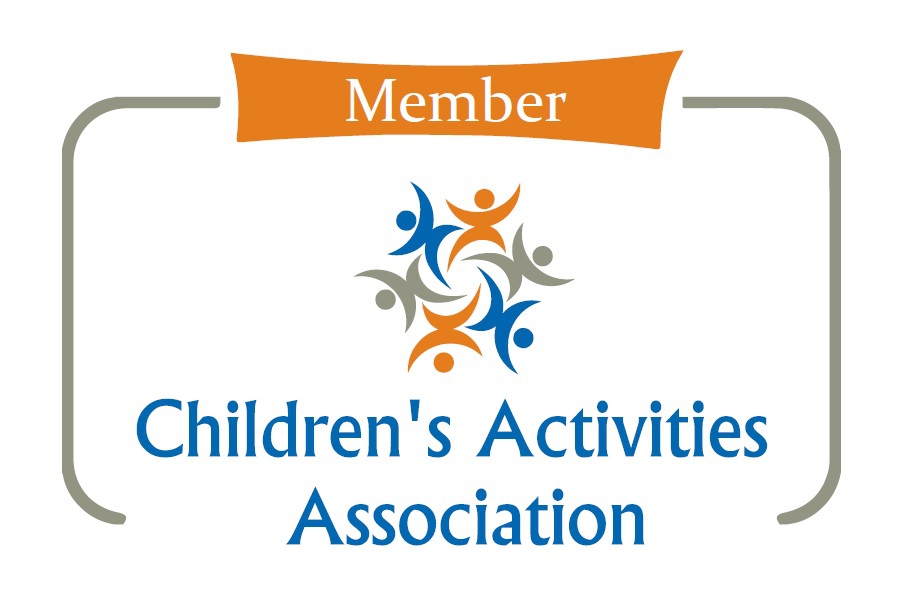Since the pandemic, children’s mental health in the UK has become even more concerning, with 1 in 5 children now experiencing mental health difficulties. Worryingly, half of all mental health problems begin by the age of 14, yet on average young people wait 10 years before receiving support. In 2021–22 alone, almost a million children and young people accessed mental health services. These figures highlight the urgent need to value and protect children’s mental wellbeing just as much as their physical health.
This week marks Youth Mental Health Day, with the 2025 theme #ShareSupport - encouraging young people, families, and communities to connect and support each other in building resilience. In line with this, we’re focusing on two key areas: coping with anxiety and developing resilience, both vital for making lasting, healthy connections with our children.
What is anxiety and how can I tell if my child is anxious?
Just like adults, children get worried about things. There are some key ages and times when children become anxious, but it can also be more general:
- Separation anxiety occurs from around 6 months until 3 years. Babies and children can be really clingy with their main care giver but this is a very normal part of development
- At preschool age, children can often develop specific fears or phobias, perhaps linked to the dark, animals hidden under the bed or fears linked to being in water. Again, these are really common and should go away over time
- Some children are naturally more shy so social situations may make them scared and worried, such as going to a party
- As children get older, fears can develop around school, and around tests and exams
Your child might exhibit the following behaviours if they are
anxious:
- Difficulty sleeping, waking in the night, bad dreams or bed wetting
- Being irritable, tearful or clingy
- Finding it hard to concentrate and focus on one thing
- Angry outbursts that can be unpredictable and seemingly come out of nowhere
- Problems eating, being fussy or picky
- Tummy aches / feeling sick
- Avoiding things such as not wanting to go to nursery or school
How can I help my child when they are anxious?
This is where connecting with your child really comes into play. Listening and trying to understand things on their level is so important.
Try the following:
► Find words at their level
Help them find words to explain how they feel on their level – for example tickly tummy, wobbly legs, scared, cross, "like I’m going to explode"
► Grown ups have worries too and it's okay!
Explain that it is okay to be worried and that you have worries too. Sometimes these worries are too big when we keep them to ourselves, and it can help to talk about them together and make them smaller.
► Make a "worry" plan
Make a plan for being brave together and talk about small, positive things you can do together when they feel frightened – draw a picture of the worries, talk about the worries together, go and play outside.
► Focus on breathing
Do some breathing exercises together – lie them down and put their favourite cuddly toy on their tummy – ask them to watch it go up and down as they breathe to help them focus on being calm.
► The importance of routine
Children can find routines really reassuring and calming, so try to stick to daily habits at set times wherever possible, especially at times when your child is more anxious.
► Distraction
Distraction can be really helpful and might be especially useful for young children – for example if they are scared of going to nursery, use the journey in to count how many blue cars they see, or how many dogs they spot out on a walk.
► Create a worry box
Get crafty and make a worry box together – it can be an old cereal box with some glitter and feathers! Encourage them to tell you what their worry is, write it down and post it into the box. Then take out the “worries” a couple of times a week to talk about them together.
What is resilience and how can it help with anxiety?
Resilience really ties in with anxiety because it is the ability to recover quickly after something bad happens to us. So let’s say your child was scared to go to nursery because another child stole their toy yesterday, and then the same happens again, how they come back from this will help them cope with future anxiety around this issue.
Resilience also ties in with anxiety because of our very strong temptation to “shield” our children when they are scared. If they don’t want to go to that party because they are naturally shy and the thought of all those people scares them, the easy option would be to just say don’t go – and you might have your own ulterior motives if it’s the third kids' party in as many weekends! But if we always shield our children from stressful situations they don’t have a chance to develop the tools to cope:
- Having opportunities to be resilient helps your child be curious, brave and trust their instincts
- They come to know their limits and push themselves out of their comfort zone when they’re older
- Testing resilience helps children problem solve, and therefore cope better with more complex situations as they grow up
So how can I help my child build resilience to help them with their anxiety?
► Build loving relationships
Having safe, loving relationships makes children feel good about themselves. It’s so important they know someone is there to protect them and wipe away their tears when things go wrong. This gives them the confidence to continue exploring their world, and basically, be kids.
► Be the best role model you can be!
Children learn from the adults around them. When your child sees you coping well with every day stress, you are showing them how to do the same.
► Encourage them to ask for help
Let your child know it’s okay to ask for help, and it doesn’t mean they have failed. This will make it easier for them to ask for help in the future. If they struggle with this, come up with a sign to use when they need help – it might be a special “code word”, or they could put a specific toy in a spot you choose together.
► Keep trying!
Encourage your child to keep trying when they find learning a new skill difficult – use phrases like “you can do it!” or “well done for trying so hard!”
► Build confidence and self-esteem
Build their confidence by pointing out all the things about them that make you proud. Try “You are so funny!”, “you are very kind and caring”, or “you try very hard”.
► Play thinking games to encourage problem solving
Thinking games are fab for children aged three and over. Let them really use their imaginations, and reassure them there are no right or wrong answers! Try asking:
- “What do you think will happen if…?”
- “What are you saying to yourself in your head?"
- “If you were a superhero, what would you do?”
What if I’ve tried all this and my child’s anxiety is still really bad?
If you’ve tried everything and your child is still really struggling with their worries and fears, and this is having an impact on their lives day in, day out, then you might need to seek some help.
Chatting to your child’s nursery or school can be really helpful. Try and speak to a more senior member of staff as they will be able to point you in the right direction for local support.
Talking to your health visitor or GP can also be an invaluable source of support. Anxiety isn’t easy to talk about, but remember, they have these conversations all the time. Sometimes reassurance that what’s happening to your child is normal is all you need, but if there is a more serious problem, then they can direct you down the right channels.
Mini First Aid offer a Healthy Minds course for 7-11 year olds. This can be arranged via your child’s school, or you could book privately with a group of friends.
Young minds offer a Parent Helpline and Webchat service – you can find out more here.
We hope this has helped if you are currently struggling with anxiety with your child. It can feel really lonely and scary, and whilst this week we are encouraging connecting with our young people to help them, it is important as parents that we remember connecting with others can help us too.
Wishing you and your family all the best, Mini First Aid x
Sources: NHS UK, Action for Children, Place 2 Be, Young Minds
First aid confidence, wherever you are
 Be prepared for life’s little emergencies with this all-in-one bundle. Inside you’ll find our award-winning First Aid Kit packed with 74 essentials, plus easy-to-follow paediatric first aid guidance for parents and carers. We’ve also included practical extras to give you peace of mind at home or on the go - all for just £27.99.
Be prepared for life’s little emergencies with this all-in-one bundle. Inside you’ll find our award-winning First Aid Kit packed with 74 essentials, plus easy-to-follow paediatric first aid guidance for parents and carers. We’ve also included practical extras to give you peace of mind at home or on the go - all for just £27.99.








